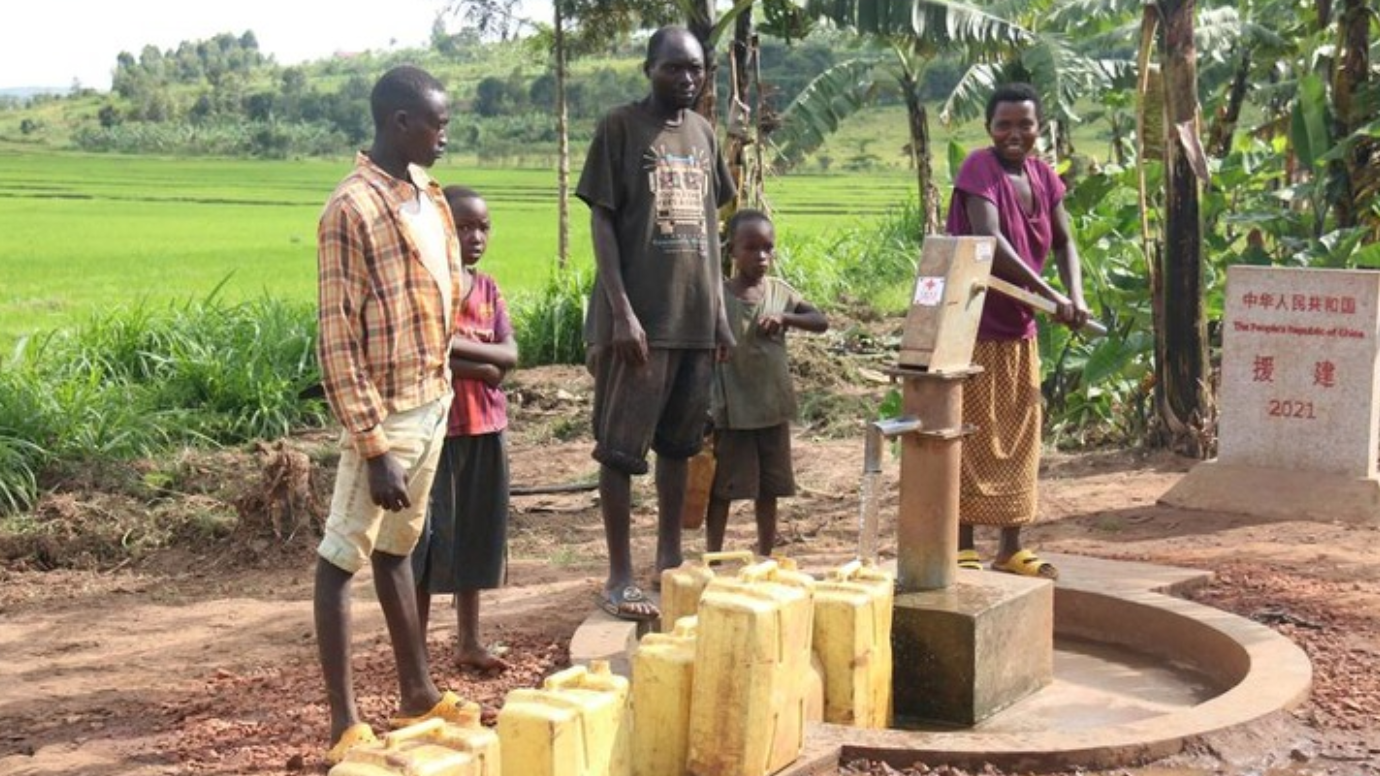HARARE, Sept. 1 (Xinhua) -- China-aided well drilling programs are bolstering the Zimbabwean government's efforts to enhance food security in vulnerable communities as the country grapples with an El Nino-induced drought, Zimbabwean Minister of Public Service, Labor and Social Welfare July Moyo has said.
In a recent interview in the capital Harare, Moyo told Xinhua that in addition to providing safe drinking water to rural communities, the wells are also supplying much-needed irrigation facilities to areas facing water shortages.
"These wells are crucial, especially during this drought," Moyo said.
Currently, 300 wells are being drilled across four provinces in Zimbabwe as part of a China-aided well drilling program launched last month. This initiative follows the declaration of a state of disaster by Zimbabwean President Emmerson Mnangagwa in March, due to the ongoing drought.
El Nino has led to prolonged dry spells and reduced rainfall, resulting in crop failures and exacerbating food insecurity, particularly in rural communities that rely on rain-fed subsistence farming.
"The wells provide more than just drinking water for people and animals. With the Ministry of Agriculture's focus on community-based businesses, we are now promoting gardening as a supplementary measure during the drought," Moyo added.
The government is also drilling wells at schools across the country to ensure students have access to potable water and nutritious meals. Moyo said that the China-aided well drilling program complements these national efforts.
"We have initiated a feeding scheme for children at over 8,000 schools nationwide. Along with distributing grains, we encourage schools with wells to establish gardens to grow additional supplements, helping us combat stunting among learners," Moyo said.
The current 300-well project builds on a previous initiative in which China drilled over 1,000 wells across Zimbabwe's 10 provinces. These wells have provided access to clean water and irrigation facilities for about 400,000 people.
In addition to supporting long-term solutions to food insecurity, Moyo praised China for providing emergency food assistance as Zimbabwe confronts the drought's impact.
Commenting on China's recent rice donation to Zimbabwe, Moyo said that it would significantly aid in addressing food insecurity. He said the government is currently providing grain to about 6.1 million people, and the Chinese donation will further bolster these efforts.
"China's support is vital to our efforts. We are prioritizing those caring for children in orphanages, as well as other vulnerable groups, including patients in hospitals, residents in elderly care institutions and people living with disabilities," Moyo said.
"We deeply appreciate this donation, not only as a supplement to what we are already providing but as a primary food source for selected recipients," Moyo added.




 A single purchase
A single purchase









